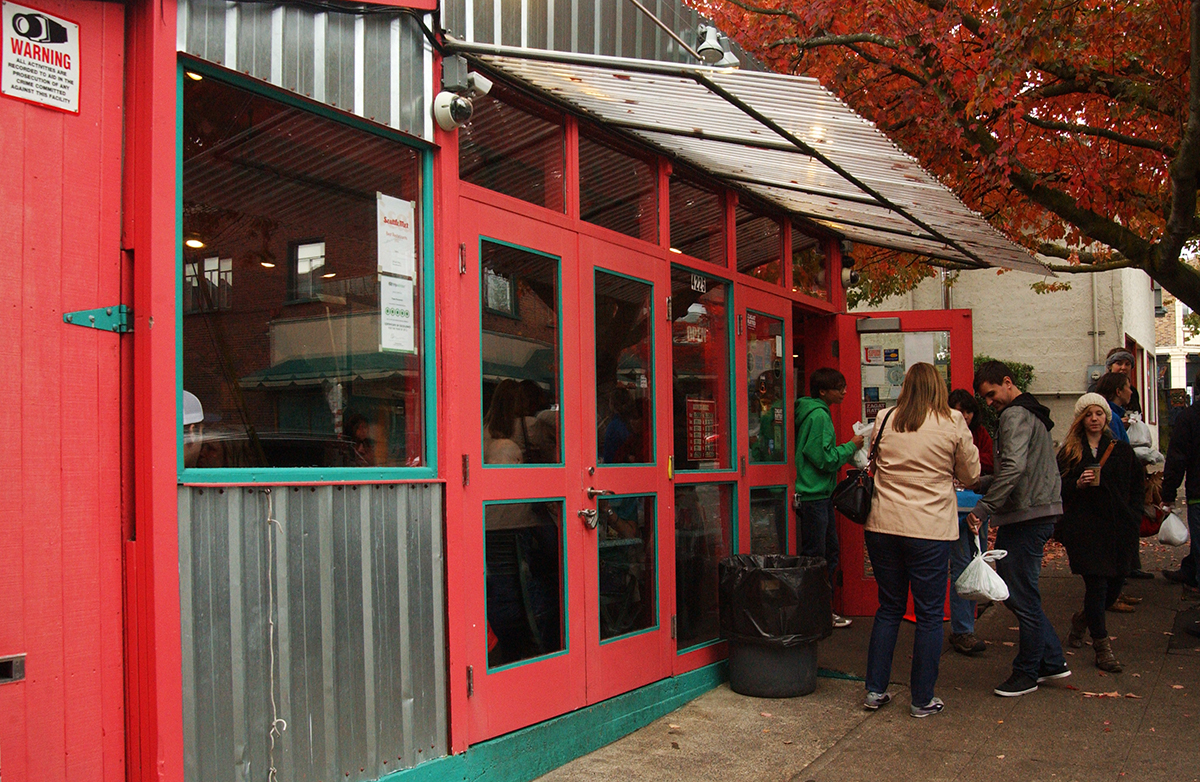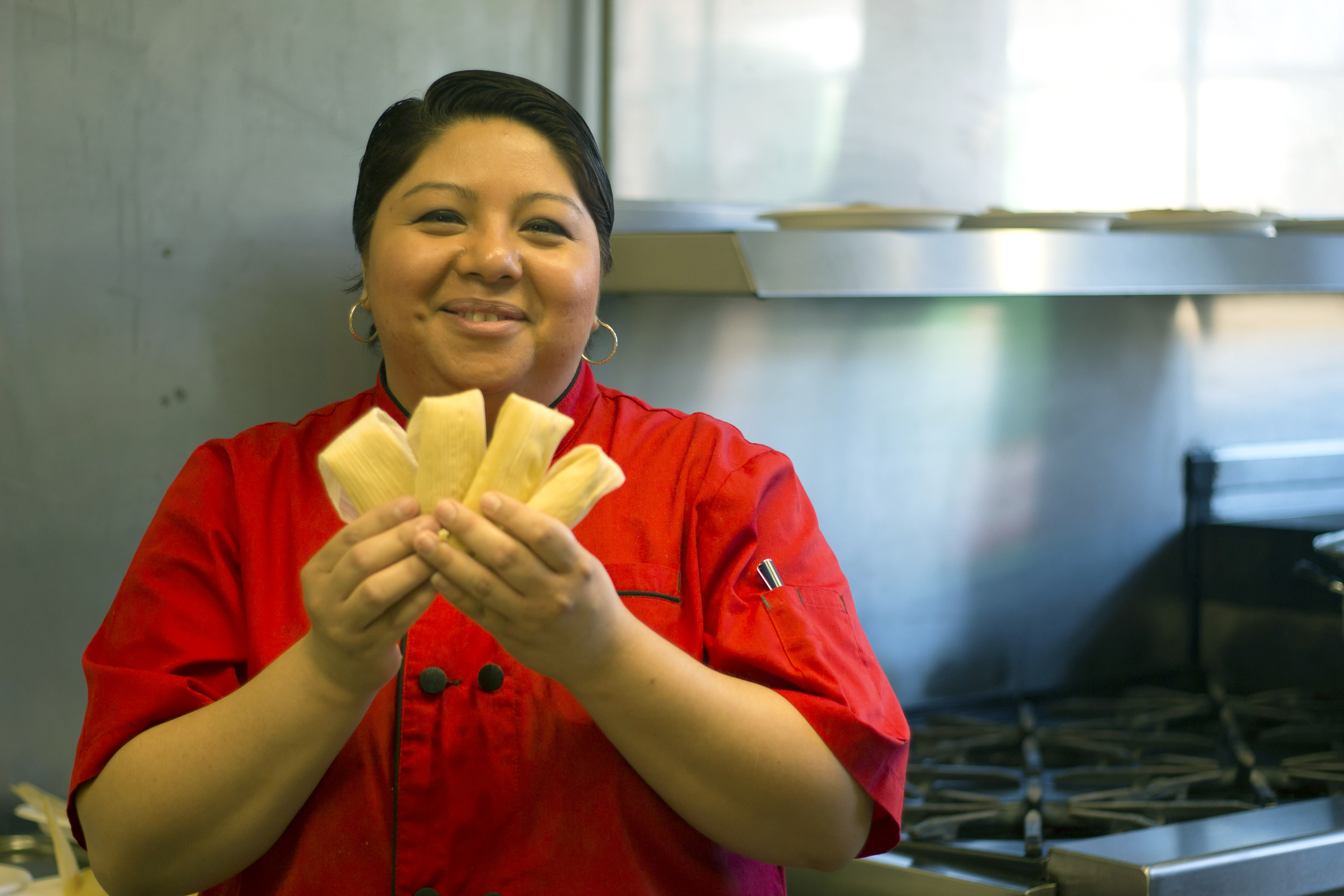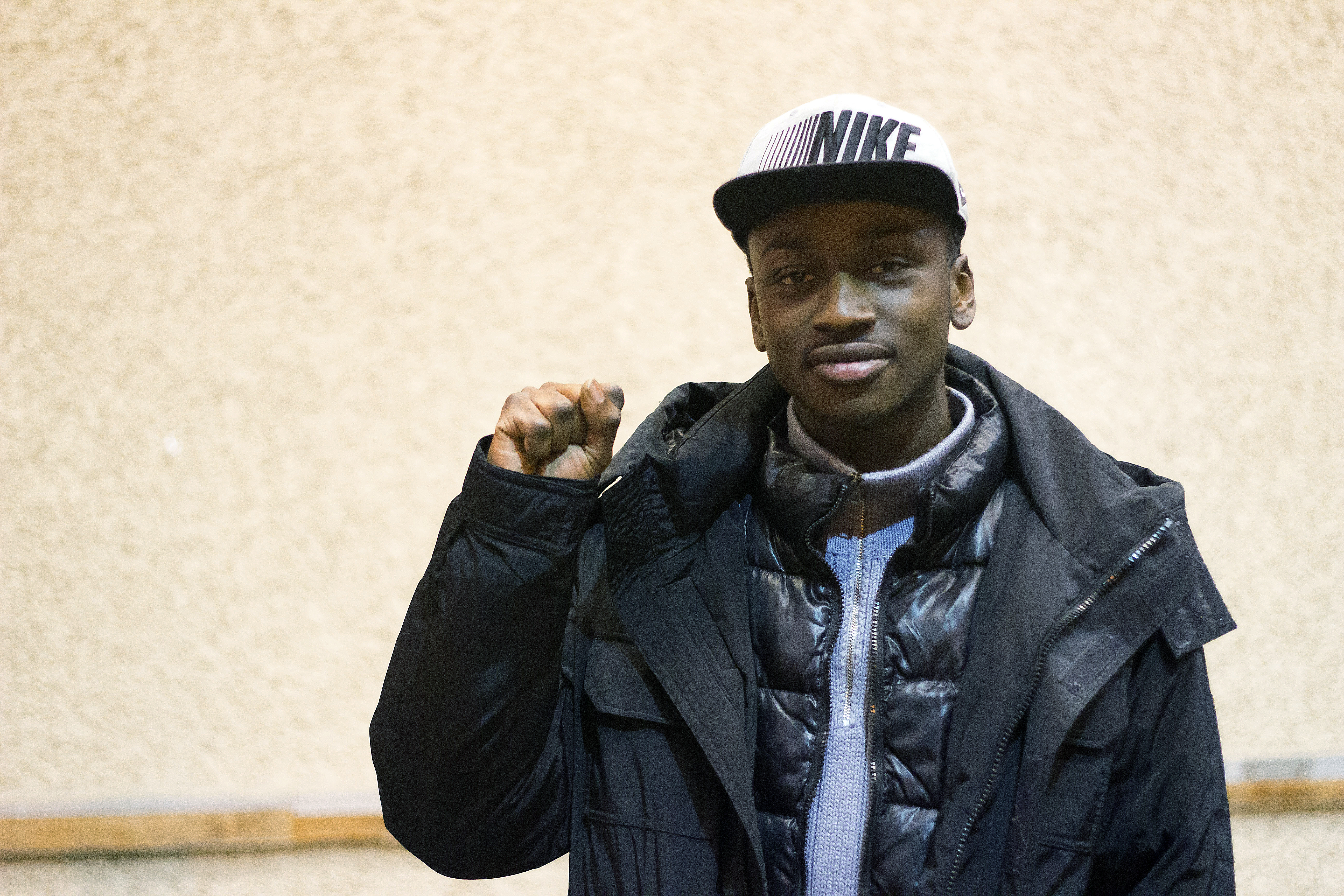Ducks flying south, holiday decorations, Christmas music, depressingly short days—they all remind me of the same thing: Soon the sandwiches will go on vacation. Every year, Paseo
Caribbean Restaurant, whose pork sirens lure crowds to round-the-block lines in Fremont and Ballard for a chance at eating their famed Cuban Roast sandwich, closes for a long winter break. The dates are never the same, but the pain when they leave is all too consistent.
A story about the sandwiches themselves would be nothing new. They’ve been featured in every Seattle publication possible and then some, finding spots in Food & Wine and Esquire, which named Paseo’s the Best Cuban Meat Sandwich in America. That’s why I wanted to know more about the break, the last uncovered nugget of a story about the restaurant. What is the time off for, and what does the Paseo staff do during it?
I imagined visits to relatives, some quaint Cuban town, beautiful beaches, roasting whole pigs . . . My mind ran wild picturing what these sandwich lords would do with a few weeks off. After hours of research and several interviews, I’m proud to say I have no freaking clue where they go or what they do during their break.
From a business perspective, it’s a hard move to comprehend. I’m no financial wizard, but if I ran a business that was exceptionally popular, I’d want to keep it going, because, well, money = good. So I figured it must be for personal reasons. I’d heard the legend of Paseo’s secret recipe: The owner purportedly came in when the restaurant is closed, and, under cover of night and behind locked doors, created the magic sauces and spice blends that bring Seattle to its knees, quivering from porkgasms. This owner, I knew from snippets of existing online articles, was a man named Lorenzo Lorenzo (really?), a Cuban American. My research also told me that his sons now run the restaurant.
So I set out to enlighten Seattle about a family I was sure that, like me, they’d be curious about—a family that has given us sandwiches so good, I’m surprised they don’t come with a pack of cigarettes. I would introduce the Lorenzo family with a story about their fascinating break: colorful tales of reunions, mountains of amazing food, some real inspirational good-eatin’ lore.
It was after the fourth phone call that I feared the story would be a bust.
Not a single article published about Seattle’s famed sandwich parlor mentions the owners’ names, much less what they do during their break. None talk about the family history or its inspiration. On Seattle’s highest-rated restaurant, according to Yelp, there’s a surprising lack of information. Even paseoseattle.com, which includes information on their menu and press accolades, proves elusive: When you click on the “About” tab, you get “About Page Coming Soon! Stay Tuned!” Classic.
The only info I found was on keynews.com, a news source for Key West, Fla., where—gasp!—there is another Paseo! It’s an interview with the Key West manager, Shaun Nielsen, who ran the Seattle locations with Lorenzo for over a decade, and who shares Lorenzo’s incredible story.
He came to America at age 14 as part of Operation Peter Pan, which assisted parents in getting their children out of Cuba and away from Castro’s unstable government. Lorenzo ended up in the opposite corner of America, though. When Seattle’s Paseos were well-established, he moved to Key West and opened another, leaving our beloved shops in the care of his sons.
That is where the fact train stopped. I tried to contact Nielsen, but heard nothing back. I couldn’t even get his phone number or e-mail address.
It all adds to the legend of how good Paseo is—a sort of Wizard-of-Oz factor. Does it matter why they won’t talk to anyone or be photographed? Not really. It seems strange to us, considering most restaurants leap at the opportunity for publicity. But clearly Paseo doesn’t need the press. As long as they focus on making some of the best food in the city, no newspaper, no magazine, nothing can help or hurt them. They’re maxed out. Hell, they could murder a puppy every time someone ordered a sandwich, and they’d still turn a profit.
But the secrecy made me madly more interested.
So I set out to interview the sons instead. But call after call went unreturned, forcing me to cold-call them when they least expected it, just before opening on a Saturday morning. That’s when I met Mario Triolo, Paseo’s manager and a five-year veteran of the establishment.
Triolo’s unshaven face can be business-serious when he needs it to be, but the Spiderman beanie he wears nearly every day betrays his friendly, laid-back personality. I asked him about the story and he seemed excited, optimistic that the brothers would talk to me. We set up a tentative interview.
Midweek I called to confirm, and Triolo added, “They’ll talk, but you can’t ask about the recipes.”
“No problem,” I said. “I have no interest in that aspect of the business.” Everything was set. Or so I thought.
It was morning when I walked into the Fremont Paseo. I found Triolo and Jordan Platz, a four-year Paseo veteran, setting up the restaurant—stacking napkins, organizing the thousands of bags that will eventually bulge with heavenly sandwiches. They’re the daily face of Paseo, and admit to the weird fame it brings.
I ask Platz, “What’s it like working here?”
From under his straight-brimmed baseball cap, his big smile widens: “I’ll meet people at parties that recognize me as the sandwich guy. It happens more often than you would think.”
We talk about the hectic pace of working in such a popular restaurant. We talk about their undying love for the sandwiches, and that even they miss the place when it closes for the winter.
Both are quick to enlighten me about their usual break schedules. Triolo’s answer is simple: “I usually take a few weeks to visit family on the East Coast, nothing special.” He informs me that the break, though it seems longer, is usually only about a month. This year it’ll start in mid-December and last until about mid-January.
For Platz, each break is an opportunity to travel. “My plans change from year to year. This year I’m headed to Mexico, sometimes I’ll stay and work on my music.” His band, Automotive Steamhorse, is about to release an album.
But I’m really here to find out more about the sons. “Can I talk to the brothers?” I ask.
“Ah, I guess they’re not interested,” says Triolo.
“Do you know what they do with their break?”
“Yeah, we can’t really talk about the family,” he replies.
No dice. Nothing. It’s clear that there’s no negotiating this. Triolo and Platz seem disappointed too—maybe I’ve infected them—but, alas, respectful of the choice.
Meanwhile, our love affair with Paseo will surely continue, with them secretly blowing our minds with bread and pork and us lining up diligently outside. Though Triolo requests, “Please don’t stand in the street. We like you and we’d hate for you to get hit by a bus.”
“Oh,” he adds with a smile, “and bring cash.”
So maybe we can all behave a little better. Maybe then they won’t leave us for a month or two. In fact, I’ll officially extend an invitation:
Hey, Paseo,
It’s Patrick. Please don’t leave this winter. We’ll miss you too much. You can come to my house for Christmas if you want. I’ll let you cook? We’ll sit down, eat some Christmas pork, maybe even play a game. How about Truth or Dare? My guess is you won’t pick truth. ; )
Love, Patrick









